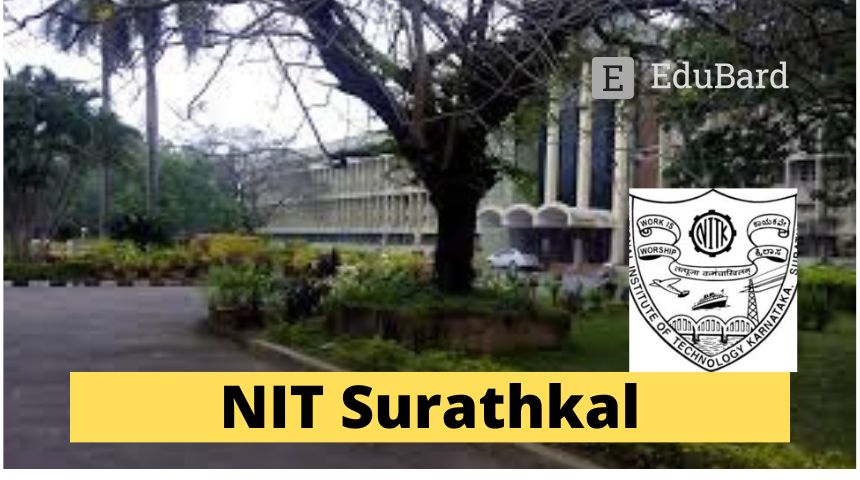NIT Surathkal |The International Conference on Advancements in Smart, Sustainable Energy Sources, Technologies, and Systems (ASSETS), Apply by 15 February 2024!

Overview:
NIT Surathkal is inviting applications for the International Conference on Advancements in Smart, Sustainable Energy Sources, Technologies, and Systems (ASSETS). Interested candidates can apply.
Topics of Interest:
The conference will cover a broad spectrum of topics, including but not limited to:
- Renewable Energy Sources
- Smart Grid Technologies
- Energy Storage Systems
- Internet of Things (IoT) in Energy
- Sustainable Transportation
- Energy Policy and Economics
- Emerging Technologies and Innovations
- Environmental Impact and Sustainability
Paper Submission:
The authors are invited to submit the Full papers of the Research/Review Papers. The papers will be peer-reviewed and only the accepted and registered papers will be considered for presentation during the conference and publication in the proceedings.
NOTE :
Acceptance of a full-length submission is strictly based on the reviewers’ comments.
All submissions need to be submitted through the CMT using the link :
At least one of the authors of an accepted paper needs to register for the conference and to present the paper(s), through an Online or Offline Mode presentation.
All manuscripts should be prepared in the following Springer's Book Chapter template.
Tracks:
Track 1:
Renewable Energy Sources:
- Solar energy technologies and applications.
- Wind energy systems and advancements in Bioenergy and biofuels.
- Hydroelectric and ocean energy.
Track 2:
Smart Grids and Energy Storage:
- Smart grid infrastructure and management Energy storage technologies (batteries, supercapacitors, etc).
- Grid integration of renewable energy sources.
- Demand-side management and energy efficiency.
Track 3:
Energy Conversion Technologies:
- Advanced power electronics and converters.
- Energy harvesting and scavenging.
- Thermoelectric and piezoelectric materials.
- Electromagnetic and piezoelectric energy conversion.
Track 4:
Internet of Things (IoT) in Energy Systems:
- Smart sensors and devices for energy monitoring.
- IoT applications in energy management.
- Data analytics for energy optimization.
- Cybersecurity in energy systems.
Track 5:
Sustainable Transportation and Electrification:
- Electric vehicles and charging infrastructure.
- Sustainable transportation policies.
- Integration of renewable energy in transportation.
- Advanced materials for lightweight vehicles.
Track 6:
Energy Policy and Economics
- Policy frameworks for sustainable energy.
- Economic implications of renewable energy adoption.
- International collaboration in energy research and development.
- Regulatory challenges and solutions.
Track 7:
Emerging Technologies and Innovations:
- Artificial intelligence in energy systems
- Quantum technologies for energy applications.
- Advanced materials for energy devices and Next-generation energy technologies.
Track 8:
Environmental Impact and Sustainability:
- Life cycle assessment of energy systems.
- Environmental impact of energy production.
- Climate change mitigation through sustainable energy.
- Circular economy in the energy sector.
Track 9:
Incorporating Indian Heritage in Smart Energy Solutions:
- Traditional Energy Practices: Explore how ancient Indian practices, such as the use of windmills, water wheels, and biomass, can be integrated into modern smart energy systems.
- Cultural Integration in Sustainable Development: Discuss ways to integrate cultural aspects of Indian heritage into the design and implementation of smart, sustainable energy projects.
- Climate change mitigation through sustainable energy.
- Any other relevant topics based on Indian Knowledge Systems relating to energy, sources, and sustainability.
Registration Fees:
|
Authors/Registration |
Offline (INR/USD) |
Online (INR/USD) |
|
UG students |
3000/199 |
3500/249 |
|
M.Tech/PhD/Faculties (max 4) |
5500/249 |
6000/299 |
|
Others |
6500/329 |
7000/349 |
| Listeners |
2000/12 |
2500/149 |
Important Dates:
-
Full Paper Submission Deadline:
February 15, 2024
-
Notification of Acceptance:
February 25, 2024
-
Last Date for the camera-ready paper:
February 25, 2024
-
Conference Dates:
March 11-12, 2024